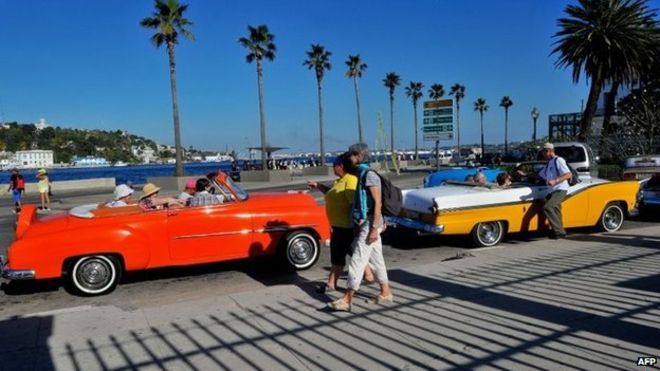
Cuba gears up for tourist influx as US relations improve
It is not hard to see why Cuba is so popular with tourists.
The music, fine cigars, rum and pristine beaches have enticed visitors to the island since before the Cuban Revolution.
Add the 1950s cars gliding through the streets of one of the last communist strongholds in the world, Cuba boasts something unique in the international tourism market: that intangible stamp of “authenticity” which so many visitors demand.
Today, even though the diplomatic ice between the United States and Cuba is melting fast, Washington’s decades-old travel ban on US citizens visiting the communist island is still officially in place.
‘Arbitrary rule’
But in the minds of many US tourists, the ban is no longer worth the paper it is written on.
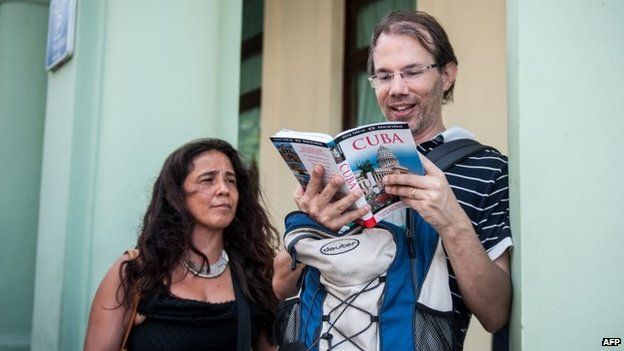
“I really don’t care whether I’m breaking the law in their eyes”, says David, a musician from Illinois who is on his second trip to Cuba in 10 years without the right paperwork.
“I thought it was a ridiculous and arbitrary rule in the first place.”
Every day, more Americans feel equally emboldened to visit the once-forbidden island, particularly after seeing their president sit down with Raul Castro for historic talks at a regional summit in Panama.
To them, it seems unfair, even illogical, to ban travel to a country you are on increasingly friendly terms with.
Traditionally, US citizens who travel to Cuba illegally do so via Mexico, Canada or the Bahamas.
But since December, travel visas for Americans have been more readily available in 12 key categories, from cultural and religious exchanges to sporting events.
Furthermore, many US visitors have simply lost their fear of being fined by the US government if they travel to Cuba without prior approval.
Unprecedented demand
Charter flights to Havana from New Orleans and New York have begun and companies like MasterCard and AirBnB have announced plans to operate on the island.
The result is an unprecedented rise in demand for flights and accommodation.
One New York tour operator told the Associated Press recently that its bookings to Cuba had jumped by almost 250% in March alone.
It is a trend echoed by travel agent Mayra Crespo of the California-based Marimar Tours.
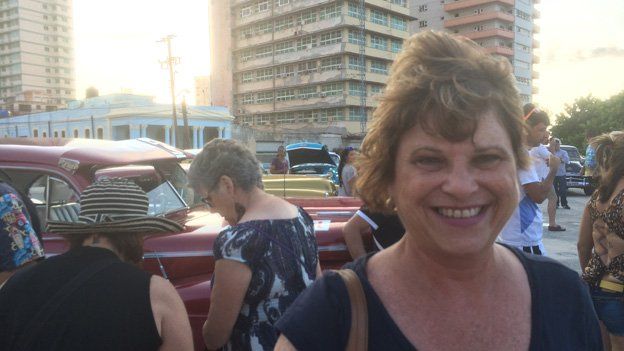
“The best word is hope”, she says as she accompanies a group of American classic car enthusiasts to the island.
“I’ve never seen such excitement. They’re waiting for us, they want us here, and my job is to be the bridge.”
As a Cuban-American who left the country as a child, Ms Crespo says people like her are uniquely placed to take advantage of the expansion in Cuban tourism.
“My generation doesn’t have the same anger [towards the Castro government] as our parents did. I want to be able to help Cuba, to be part of the solution.”
Getting ready
Of course, the key question at this stage is whether the country’s ageing tourist infrastructure can cope with such a sharp spike in visitors.
The number of US visitors – 600,000 annually, a figure that includes many Cuban-Americans visiting relatives – is expected to rise further. The number of non-US tourists could also double over the same period.
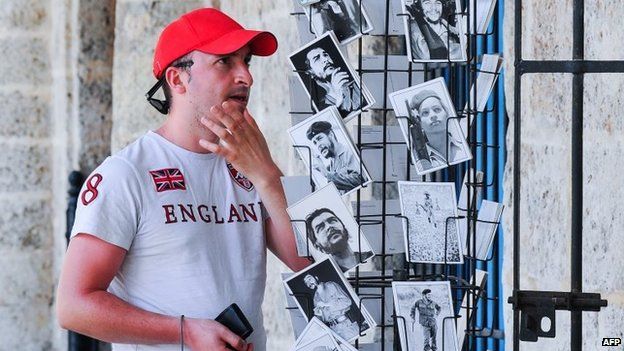
There is a palpable sense of urgency among some European and Canadian tourists to try and experience Cuba “before the Americans arrive”.
The Cuban government says it has prepared for the boom with an airport expansion plan and new luxury hotels under construction in both Havana and popular beach resorts like Varadero.
“We all have to get ready, little by little”, says Alfredo Lachos, the general manager of the luxury Iberostar Parque Central Hotel in Old Havana.
“Our brand has been working for years to prepare for an expansion like this. I think we’re ready.”
New opportunities
But it is already getting difficult to find available rooms in the hotels or reserve tables at popular restaurants – particularly during high season.
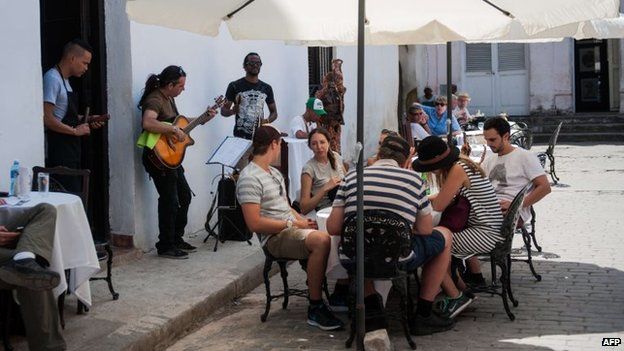
“There’s no room at the inn”, jokes Lucy Davies, a British tour operator with Cubania travel, which specialises in cycling holidays.
“If you don’t have your hotel rooms booked in advance, you may have to make do with something else.”
If the state-run hotels cannot cope with the boom, there are plenty of people willing to step into the breach.
Thousands of private homes offering bed and breakfast – known as casas particulares – have cropped up since Raul Castro began to relax the rules on private enterprises a few years ago.
As AirBnB also enters the Cuban market, that may help alleviate the potential demand.
But the website assumes one key thing – that the homeowner has access to the Internet – which, in Cuba, is not always the case.
For decades, Cuba has been a country of movement and migration.
Now it seems the tide of people leaving the island may be replaced by waves of tourists visiting it instead.
Featured image: Cuba’s vintage cars are proving an added draw for tourists visiting the island.
(From BBC)

